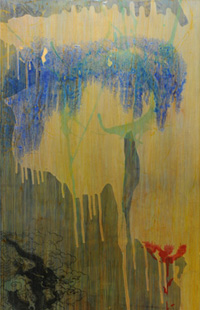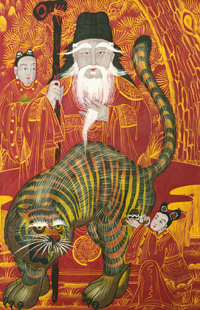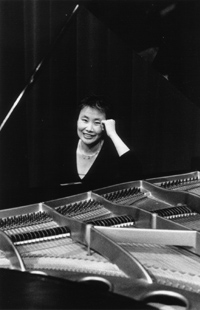Hee Sook Kim, Untitled, Mixed Media on Panel, 2009
Korean Arts Festival
Haverford College
October 4—December 12, 2010
Organized by Assistant Professor of Fine Arts Hee Sook Kim and Associate Professor of East Asian Studies Hank Glassman, the Korean Arts Festival brings to Haverford College traditional as well as contemporary Korean art, music, and performance.
Sponsored by the John B. Hurford '60 Humanities Center, the Cantor Fitzgerald Gallery, the Kessinger Family Fund for Asian Performing Arts, the Korea Society, and the Haverford College Departments of Fine Arts and East Asian Studies.
In and With: Contemporary Korean Art
Cantor Fitzgerald Gallery
October 22—December 12, 2010
Curated by Haverford College Assistant Professor of Printmaking Hee Sook Kim, In and With: Contemporary Korean Art pairs the work of three artists living and working in Korea with that of two Korean nationals currently residing in the United States. In paintings, prints, and mixed-media works, Hee Sook Kim, Juri Kim Oliva, Oh Su Fan, Suh Yong Sun, and Yoo Bong Sang explore how proximity to their cultural heritage and distance from it variously inform their artistic practice.
Artists
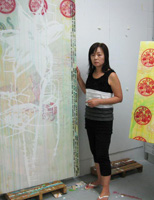
Hee Sook Kim
Hee Sook Kim received her B.F.A. and M.F.A. from Seoul National University, and then came to the United States in her twenties to earn her M.A. from New York University. Kim has received a number of grants and awards, including a grant from the Pollock-Krasner Foundation and a Merit Award from the Central Pennsylvania Festival of the Arts. Employing herbal imagery to convey "nature's spirituality like that found in Taoism," she also uses alternative, American herbal medicines "to explore the cultural exchange between Eastern and Western cultures." Hee Sook Kim's prints and paintings have been exhibited around the world, including the National Museum of Modern Art, Seoul; Art Cosmos Center in Korea; the Taipei City Museum of Art in Taiwan; and Le Centre d'Estudis d'Art Centemporari in Barcelona, Spain. She is currently an Assistant Professor at Haverford College in the Fine Arts Department, teaching printmaking.
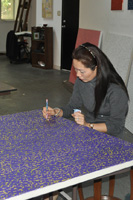
Juri Kim
Juri Kim was born in South Korea and completed her B.F.A. and her M.F.A. at Ewha Women's University in Seoul; later, she received her M.A. and completed her Advanced Professional Study at New York University. Having lived in various cities around the world, she currently resides in Philadelphia. Juri Kim's work has been featured in several solo exhibitions in the United States and Korea and in numerous international group exhibitions. She has been reviewed in Art in America and has work in the Henry Buhl Collection, which was exhibited in the Guggenheim Museum. Additionally, Juri Kim is the recipient of several prestigious grants, including a Gifford Foundation Grant in 2000 and the Andrew W. Mellon Foundation Fellowship in 2002.
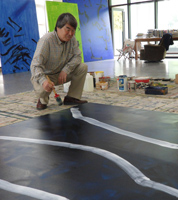
Oh Su Fan
Oh Su Fan was born in Jinju, South Korea and received his B.F.A from Seoul National University in 1969. His paintings are distinguished by their bold lines and solid background colors that combine Western and Korean influences. Oh's works have been featured in many solo exhibitions in Korea, France, Canada, and Spain, as well as in numerous international group exhibitions. He is currently a Professor in the Department of Fine Arts at the Seoul Women's University.
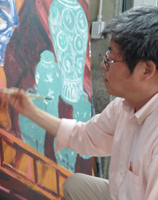
Suh Yong Sun
Suh Yong Sun was born in Seoul, Korea, where he later received his B.F.A. and M.F.A. from Seoul National University. Suh started painting in 1979; since then, he explains, he has attempted to represent "an image that is both about personal experience and perception" yet at the same time resonant with "its audience, socially and politically." Suh's work has been featured in a number of international solo and group shows in Korea, Japan, Germany, Australia, the United States, and France.
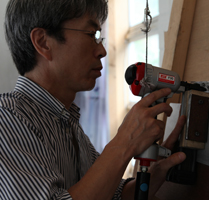
Yoo Bong Sang
Raised in South Korea, Yoo Bong Sang received his B.F.A. in 1983 and M.F.A. in 1987 from Seoul National University; he has since spent twenty years in France. Today, Yoo is better known as the "nail artist" because of his use of thousands of small nails to create "sculptural planes" and "flat sculptures". The recipient of the Pollock-Krasner Foundation Grant in 2001, he has been featured in numerous one-person expositions throughout Korea and France. He currently holds a residency at the Youngeun Museum of Contemporary Art in South Korea.
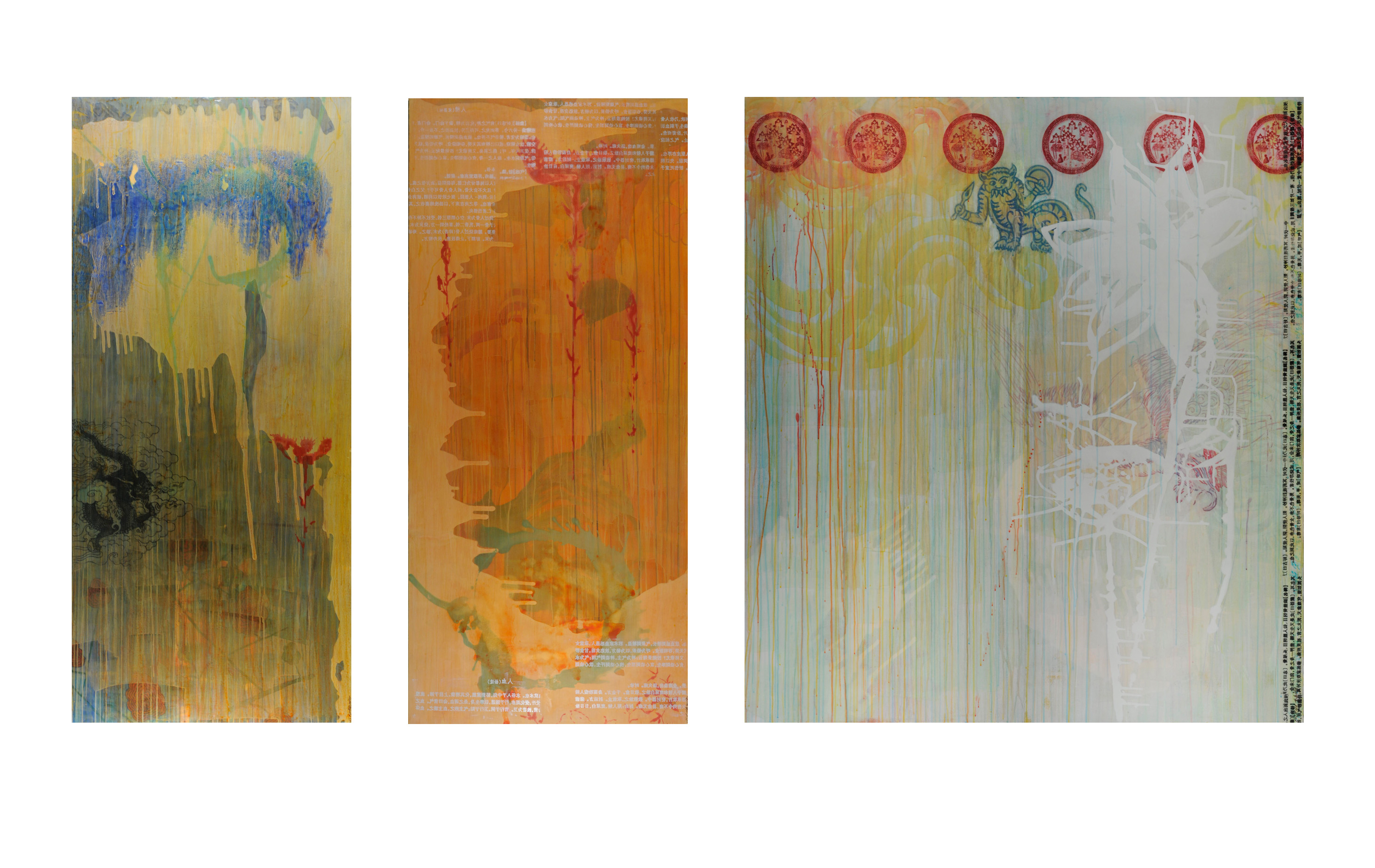
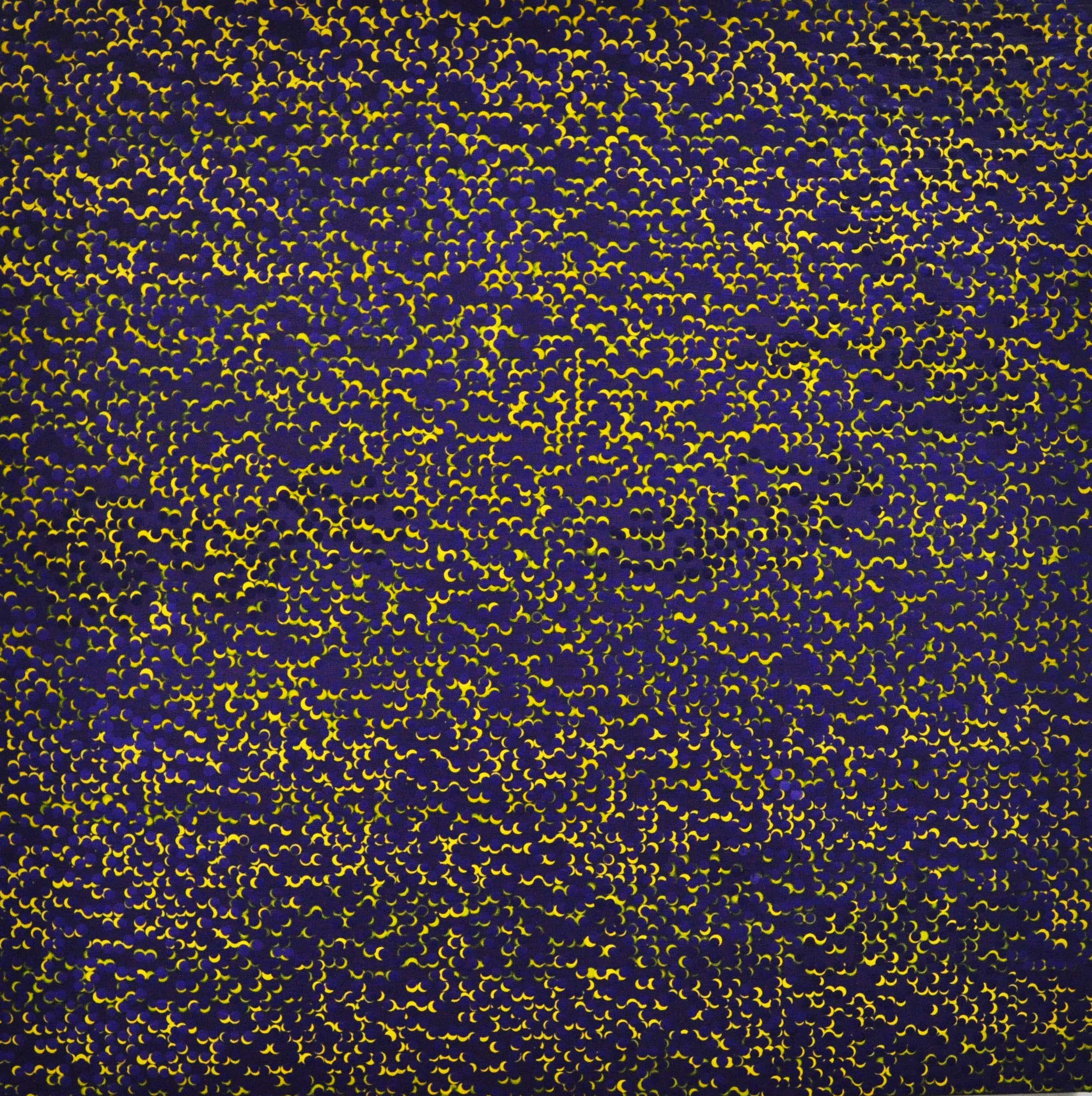
Juri Kim, Don't Ask Me Why, Oil on Canvas, 2010
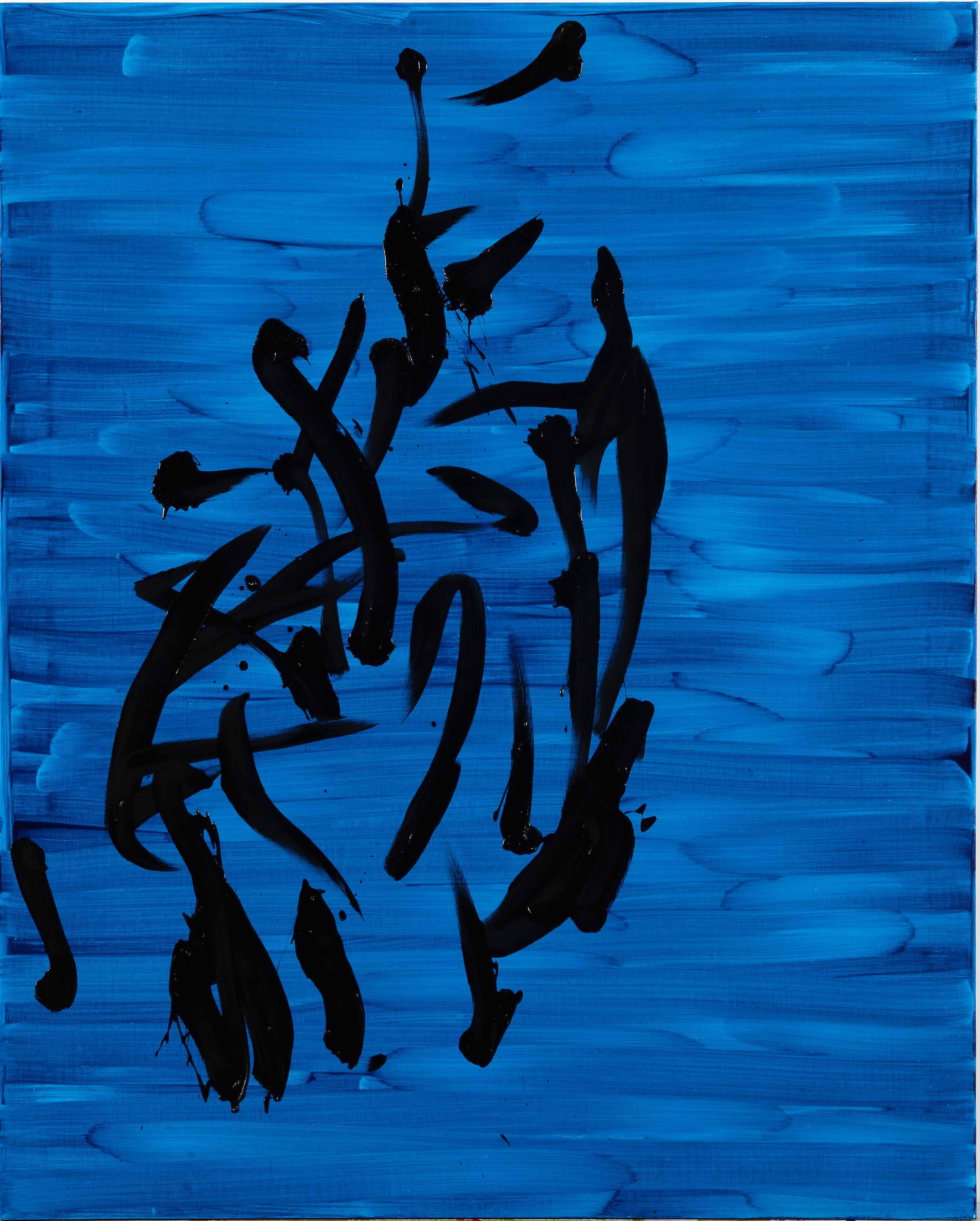
Oh Su Fan, Change, Oil on Canvas, 2010
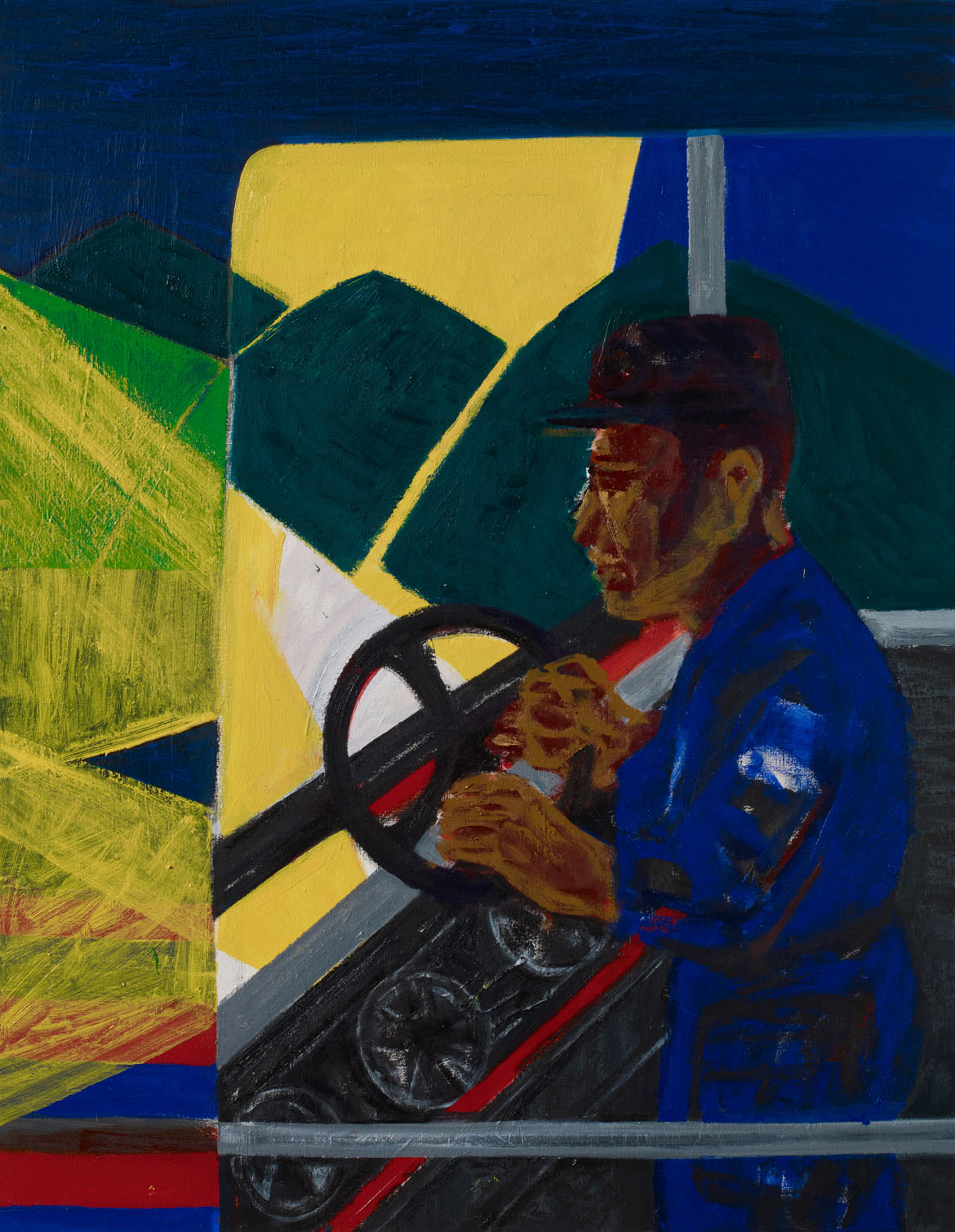
Suh Yong Sun, Coal Miner's Car, Oil on Canvas, 2008
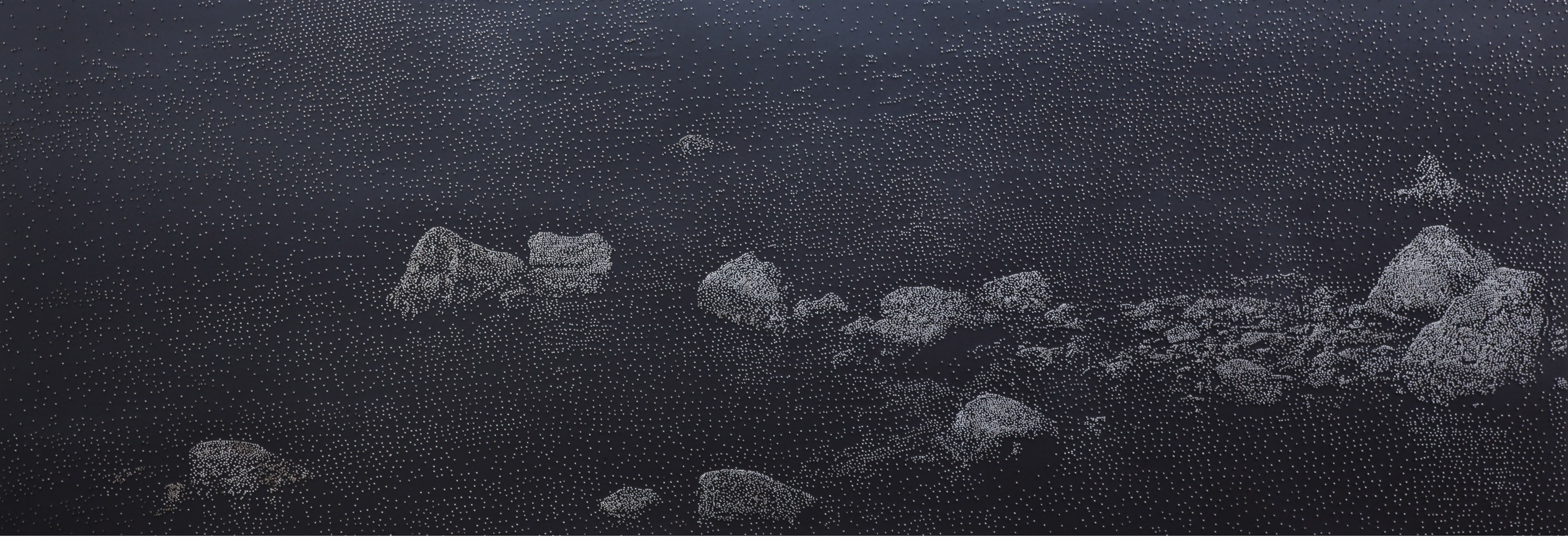
Yoo Bong Sang, R20100526, Nails Acrylic on Wood 2010
Gods, Demons, and Generals: Icons of Korean Shamanism
Stokes 102 in Stokes Hall
October 4—November 19, 2010
The eleven paintings in this traveling exhibit from The Korea Society of New York represent and explore the indigenous shamanic tradition, a force that occupies the nexus of the culture and religion of Korea.
These paintings were not created as art or decoration but as visual representations of the gods that a shaman honors each day in her shrine, calls upon to help her give divinations, and manifests in her own person when she performs an elaborate ritual called kut. When they appear in kut, the gods and ancestors speak through the shaman’s lips and perform through her body, chastising family members for neglect and misbehavior but also bringing promises of good fortune. The images in the paintings, like the costumes that shamans wear in kut, reveal a lively religious practice that incorporates elements of popular religion, Buddhism, and the old Confucian state, often with a dash of humor. To glimpse the world depicted in these compositions is to gain a unique perspective on Korea's ancient past and immediate present at once.
Gods, Demons and Generals: Icons of Korean Shamanism is the first substantial survey of Korean shamanism to be exhibited in the U.S. The exhibit will be open to the public on Mondays, Wednesdays, and Fridays from 9:30 a.m. to 12 p.m. Weekend hours will be available during Haverford’s Family Weekend, Friday, October 29-Sunday October 31 from 1-4 p.m
On Wednesday, November 3 from 2:45-3:45, Professor Michael Pettid of Binghamton University, SUNY, will lead a gallery talk in Stokes 102. And on Thursday, November 4 at 4:15pm, also in Stokes, he will present a talk entitled, "Shamans, Ghosts and Hobgoblins amidst Korean Folk Customs." The November 4th talk will be followed by a reception.
Gods, Demons and Generals: Icons of Korean Shamanism is organized and curated by The Korea Society as part of their traveling exhibition programs. It is currently traveling to colleges, universities, galleries and nonprofit institutions across America and comes to Haverford College courtesy of the John B. Hurford '60 Humanities Center.
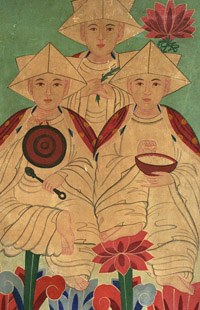
Birth Spirits
Color on Paper and Fabric
37 (H) x 25 (W) inches
Early 20th Century
The Korea Society Collection
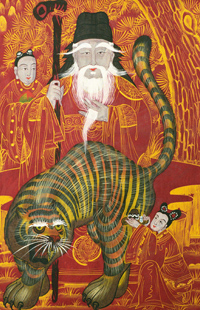
Mountain God
Color on Paper and Fabric
43 (H) x 31 (W) inches
Early 20th Century
The Korea Society Collection
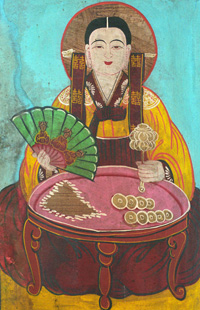
Great Spirit Grandmother
Color on Paper and Fabric
37 (H) x 25 (W) inches
Early 20th Century
The Korea Society Collection
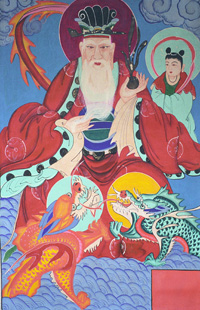
Dragon King
Color on Paper and Fabric
63 (H) x 41 (W) inches
Mid-20th Century
The Korea Society Collection
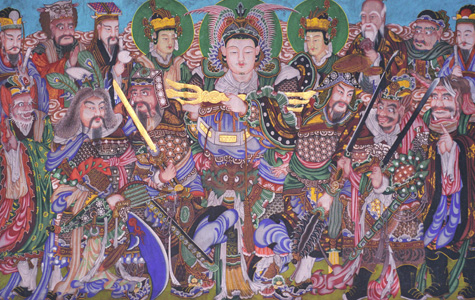
Guardian Spirits
Color on Paper and Fabric
42 (H) x 63 (W) inches
Mid–20th Century
The Korea Society Collection
Korean Music Then and Now
Six musicians from Korea - the Gyeonggi Kayaguem/Gayageum* Ensemble (Hae Jung Lee, Eun Jeong Kim, Kyung Sun Cho, and In Jung Lee), and the Pansori virtuoso Bok Sun Cha with percussionist Jae Gu Choi are the featured performers at this year's Music and Art Festival at Haverford. Five members of Philadelphia's Network for New Music, along with Haverford Assistant Professor of Fine Arts Hee Sook Kim and composers Christopher Shultis and Hyo-shin Na, will join the musicians visiting from Korea.
The festival will present the highly dramatic one-person opera (Pansori); virtuosic solo zither music (Sanjo); the premiere of a new work for kayaguem/gayageum ensemble written for this occasion by Christopher Shultis with visual work of Hee Sook Kim; zither ensemble music by some of the leading composers from Korea including Byung-ki Hwang; and Hyo-shin Na's Second Song of the Midnight Battlefield for pansori singer, clarinet, trombone, western and Korean percussionists, and piano.
- * The name for the Korean zither has, until recently, been written in English as "Kayaguem". However, the current spelling is "Gayageum" and, to avoid any confusion, in these notes it will appear as "Kayageum/Gayageum"
- Established in 2000, the Gyeonggi Kayageum/Gayageum Ensemble's mission is to commission and perform new works based on Korean folk songs from Gyeonggi Province. The group has produced two CDs of these works and continues to give concerts of both new and traditional music. Their performance at this festival is their US debut and marks their first appearance outside Korea.
Musicians
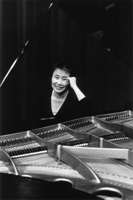
Hyo-shin Na
Hyo-shin Na has written for western instruments, for traditional Korean instruments and has written music that combines western and Asian (Korean and Japanese) instruments and ways of playing. Her music for traditional Korean instruments is recognized by both composers and performers in Korea (particularly by the younger generation) as being uniquely innovative. Her writing for combinations of western and eastern instruments is unusual in its refusal to compromise the integrity of differing sounds and ideas; she prefers to let them interact, coexist and conflict in the music.
In Korea, she has twice been awarded the Korean National Composers Prize, and in the west she has been commissioned by the Fromm and Koussevitzky Foundations among many others. Her music has been played worldwide by ensembles as varied as the Barton Workshop, the San Francisco Contemporary Music Players, the Kronos Quartet, and the Korean Traditional Orchestra of the National Theatre. Portrait concerts, consisting solely of her music, have been presented in Amsterdam by the Barton Workshop (2006), in Seoul by JeonGaAkHoe (2009) and Buam Arts (2009), and at Texas A&M University (2007).
She is the author of the bilingual book Conversations with Kayageum Master Byung-ki Hwang (Pulbit Press, 2001) and the translator into Korean of Christian Wolff's article Experiments in Music around 1950 and Some Consequences and Causes Social-political and Musical (Soomoon-dang Press, 2011). Her music has been recorded on the Fontec (Japan), Top Arts (Korea),Seoul (Korea) and New World Records (US) labels and has been published in Korea and Australia. Since 2006 her music has been published exclusively by Lantro Music (Belgium).
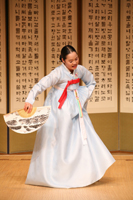
Bok Sun Cha
Bok Sun Cha is one of the leading Pansori (one-person opera) virtuosos in Korea. She is also one of the few pansori singers who has expanded her activities to singing contemporary works. As such, she has been a soloist at the Jeonju Sori Festival in Korea (2005) and has collaborated with members of the Barton Workshop in Amsterdam (2006). She is making her US debut at the Music and Art Festival at Haverford College in 2010.
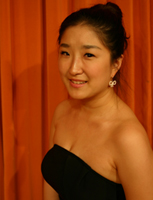
Kyung Sun Cho
A graduate of Yong-In University, Kyung Sun Cho is a member of the Sookmyung Women's University Kayageum/Gayageum Orchestra in addition to being a member of the Gyeonggi Kayaguem/Gayageum Ensemble.
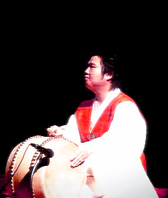
Jae Gu Choi
Jae Gu Choi is the winner of numerous traditional drumming competitions throughout Korea. He specializes in the accompaniment of Pansori (Korean one-person opera), utilizing not only his ability to skillfully accompany the singer, but also his extensive knowledge of the Pansori repertoire. He has gained much recognition as one of the younger generation of traditional Korean percussionists.
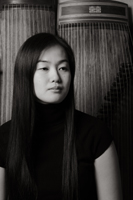
Eun Jeong Kim
The winner of many competitions, most recently the Seoul Kayageum/Gayageum Contest in 2004, Eun Jeong Kim was educated at Hanyang University and Yong-In University. She is an active chamber music player in addition to being a soloist.
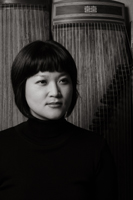
Hae Jung Lee
Hae Jung Lee, the leader of the Gyeonggi Kayaguem/Gayageum Ensemble, is a lecturer at Yong-In University. She was the first prize winner at the Kyung Nam Guk Ak Festival and has collaborated with the Seoul Orchestra of Traditional Music.
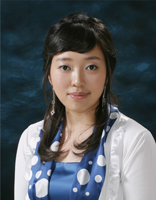
In Jung Lee
Educated at the National High School of Traditional Arts and Yong-In University, In Jung Lee teaches at SoRiNaRae - the Institute of Korean Traditional Music. In addition to her activities as a soloist and teacher, she's an active chamber music player.

Network for New Music
Network for New Music has a nearly twenty-five year history of adventurous and innovative programming and virtuoso performances. The 2010-2011 season is no exception, when new music explores the sounds and instruments of Asia. Artistic Director Linda Reichert draws in the very best composers from across the nation and the world, and programs their work with that of the best and most interesting Philadelphia composers. As performed by the brilliant Network for New Music Ensemble (many of whom are also members of The Philadelphia Orchestra), the result is an invigorating and exceptional take on the best of contemporary music, and a window into the future's standard repertoire. Network's creative programming and spectacular musicianship has attracted world-class guest artists and composers such as Leon Fleisher, Peter Serkin, William Bolcom, Christoph Eschenbach, and many others; and Network often collaborates with artists from the worlds of dance, video, poetry and theater. Through residencies, workshops, and outreach concerts, the ensemble nurtures the gifts and enthusiasm of students who write and play the music of the next generation.
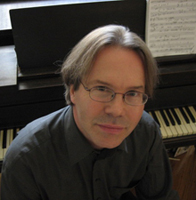
Christopher Shultis
Christopher Shultis is Regents' Professor of Music at the University of New Mexico. His early musical life was as a performer, specifically a percussionist and conductor specializing in the interpretation of experimental music. His first compositions (1988-94) were experimental in nature. Since 1995, influenced by the writings of Henry David Thoreau, Shultis's compositions begin with the attempt to reach a personal emptiness that occurs during very long walks&emdash;in the New Mexico wilderness, the Pennsylvania woods, or (for this piece) the Korean mountains&emdash;where nature, real not imagined, is the source that inspires.
